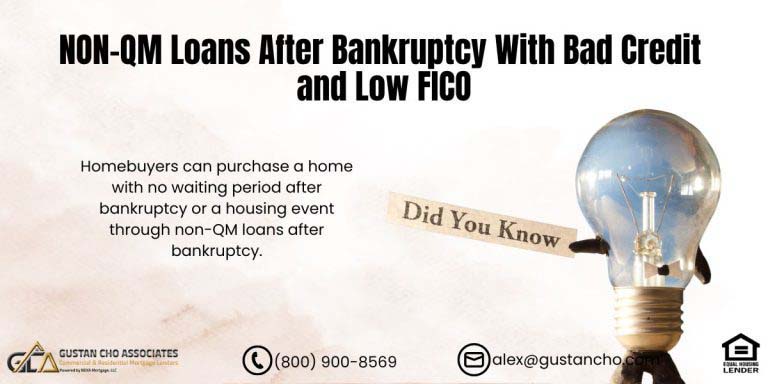This Article Is About What Do Underwriters Look On Credit Report Besides Credit Scores
Credit scores is the biggest factor in determining mortgage rates. Credit scores also determines whether or not borrowers qualify for certain mortgage loan programs. However, just meeting the minimum credit score requirement is not a ticket to mortgage approval.
Below Are Things What Do Underwriters Look On Credit Report?
- Look at qualified income
- Employment history and stability
- The borrowers ability to repay the new mortgage payment
- Declining and/or increasing income
- Is the employment and income likely to continue for the next three years
- The borrowers overall payment history with special emphasis with payment history in the past 12 to 24 months
- Credit Disputes
- Outstanding Collections/Charged Off Accounts and rebuilt and reestablished credit after period of derogatory credit period
- Credit Tradelines
- Overall payment history
- Periods of derogatory credit
- If the borrower has a prior bankruptcy and/or foreclosure, has the borrower rebuilt and reestablished their credit
- Late payments after bankruptcy and/or foreclosure
- Reserves and compensating factors
HUD Credit Score And Down Payment Guidelines
To qualify for an FHA loan with a 3.5% down payment, borrowers need a minimum credit score of 580:
- Borrowers can qualify for an FHA loan with credit scores under 580
- However, home buyers with under 580 need a 10% down payment
- To qualify for a conventional loan, borrowers need a 620 credit score
- To qualify for a jumbo mortgage, most jumbo lenders require a 700 credit score
- However, mortgage lenders will also look at the borrower’s credit report and payment history
Mortgage underwriters will carefully review both a borrower’s credit scores and credit report in determining credit risk.
Things What Underwriters Look On Credit Report
What Do Underwriters Look On Credit Report is borrower’s overall credit history on the credit report?
- If a loan applicant has an overall 10-year credit history, the mortgage underwriter will look at the period of bad credit history
- Mortgage underwriters will want to question the reason for the period of bad credit
- Most likely, underwriters will ask for a letter of explanation on the period of bad credit
- Letter of explanation should be short and to the point
- Most loan officers will write the letter of explanation with the borrower
Let’s take a case scenario on how and what underwriters look on a credit report:
- On a 10-year credit history
- the applicant had a streak of bad credit on year 5 and year 6
- the applicant had collections, charge offs, and late payments
- back on year 7, the mortgage loan applicant started to re-establish their credit again
- underwriters will want to know what happened on year 5 and year 6
The applicant needs to write a letter of explanation on why their credit was bad during those periods.
Reasons Why Consumers Get Bad Credit
Common reasons why consumers have periods of bad credit is due to the following:
- unemployment
- divorce
- medical issues or other extenuating circumstances
- Applicants should not freak out when an underwriter asks for a letter of explanation
- There is no right or wrong answer
- They just want to know the applicant is not an irresponsible person
- That the period of bad credit was due to an extenuating circumstance and not due to financial irresponsibility
Consumers do go through periods of bad credit when they lose their jobs or due to circumstances beyond their control and lenders do understand that.
Credit Disputes Will Halt Mortgage Process
Loan Officers under no circumstances issue pre-qualification letters to borrowers with any credit disputes.
Credit Disputes will halt the mortgage process. The reason being is because when consumers dispute derogatory tradelines, credit bureaus will automatically remove the negative item from its credit scoring model. Consumer credit scores will increase once the credit dispute is triggered. This is because the credit scoring formula thinks the negative item does not exist. By retracting credit disputes, the negative factor is factored back in the factoring formula. The derogatory tradeline negative points are back in force. Retracting credit disputes will drop consumer credit scores. What Do Underwriters Look On Credit Report are credit disputes. All credit disputes will need to be retracted before proceeding with the mortgage process. Medical collections are exempt from credit dispute retraction. Non-medical credit disputes that are older than 24 months from the date of last activity are exempt from retraction. If you have credit disputes against several creditors but the outstanding total balance is less than $1,000, it is exempt from removing the disputes. Non-medical disputes with zero balance are exempt from retraction.
High Credit Scores Does Not Guarantee Mortgage Approval
Just having a high credit score does not mean applicants are home free and guaranteed a mortgage loan approval. Credit scores are what initially qualify borrowers for a mortgage loan. Credit history on the credit report will be carefully reviewed. What underwriters look on the credit report is to see if borrowers have been timely on payments in the past 12 months. Mortgage underwriters do not want to see any late payments in the past 12 months. Borrowers can have prior bad credit, a prior bankruptcy, and prior foreclosure. But underwriters want to see no late payments after a period of bad credit, prior bankruptcy, and prior foreclosure. Mortgage underwriters want to see on-time payment history and re-established credit in the past 12 months.
What Do Underwriters Look On Credit Report: Qualifying For Mortgage With A Lender With No Overlays
Over 75% of our borrowers at Gustan Cho Associates are folks who could not qualify at other lenders due to that lender having overlays.
- Overlays are additional mortgage lending requirements by each individual lender that is above and beyond agency guidelines
- For example, the minimum credit score requirements to qualify for a 3.5% down payment FHA loan are 580
- However, most lenders will have lender overlays on credit scores where they will require 620 even though HUD Guidelines only require a 580
- Gustan Cho Associates Mortgage Group has no overlays on government and conventional loans
- Whatever the automated underwriting system approval findings are, that is the final approval
- We will not just close our borrowers’ loans but will close them on time
- All of our pre-approvals are fully underwritten and signed off by our mortgage underwriters
- They are full loan commitments to lend
This is the reason why Gustan Cho Associates closes all of our loans.
What Do Underwriters Look On Credit Report Prior To Conditional Loan Approval
Pre-Approvals should not be issued by loan officers. All pre-approvals should be issued by mortgage underwriters. It is when loan officers issue pre-approvals that stress during the mortgage process happens. Never enter into a purchase contract without having a solid pre-approval that has been fully underwritten and signed off by a mortgage underwriter. Borrowers who are interested in starting the pre-approval home process with a direct lender with no overlays on government and conventional loans, please contact Gustan Cho Associates Mortgage Group at 800-900-8569 or text us for a faster response. Or email us at alex@gustancho.com. The team at Gustan Cho Associates is available 7 days a week, evenings, weekends, and holidays.










